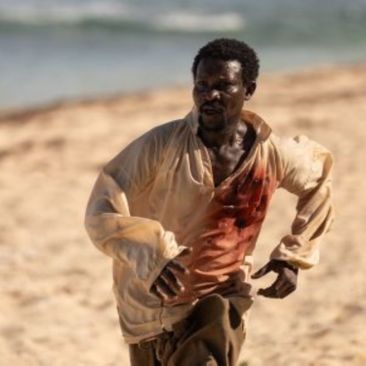- Home
- Event calender
- Filmhuis Sneek: Ni chaînes ni maîtres

Filmhuis Sneek: Ni chaînes ni maîtres
- Tuesday 18 Marchvanaf 20:00
In Ni chaînes ni maîtres, we follow the enslaved Mati, who dreams of a free life away from the sugar cane plantation. Tradition has it that somewhere on Île de France (present-day Mauritius) there is a place where former slaves live in freedom. Mati's father Massamba doesn't believe any of this, and thinks she had better resign herself to her fate. After all, that is the only chance of survival. When Mati does escape, and the plantation owner hires the notorious slave hunter Madame de la Victoire to capture her, Massamba sees no other option but to throw off his chains and find his daughter before it is too late. Ni chaînes ni maîtres is the first recent major French feature film to take a look at France's slavery past. For the screenplay, director Simon Moutaïrou worked closely with historians to make the film as realistic as possible to contribute to awareness around France's slavery past.
It was Dutch settlers who were the first to establish a settlement on uninhabited Mauritius in 1598 - the name still refers to the Dutch Prince Maurice. It was also Dutch who were responsible for eradicating the dodo, and for introducing sugar cultivation with enslaved Africans and Asians. And thus for the first Maroons, who were therefore already on the island when the French, after the departure of the Dutch, took it as Île de France in 1721.
Maroons are free to enslave people and their descendants. The word "Marron" derives from the term "cimarrón. This is a Caribbean-Spanish word meaning "runaway or feral cattle. Originally, therefore, 'Marron' had a negative connotation. Today, it has lost the negative connotation. 'Marron' is now preferred over other.
Lees meer